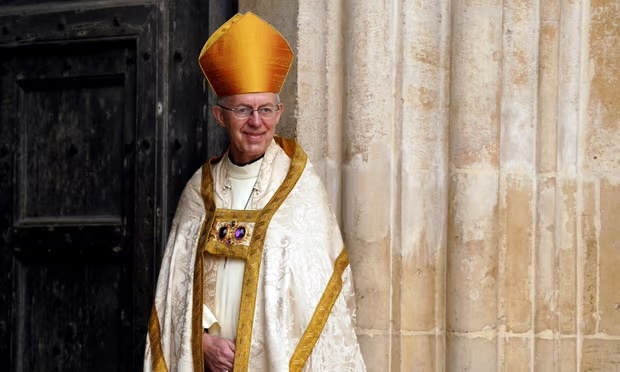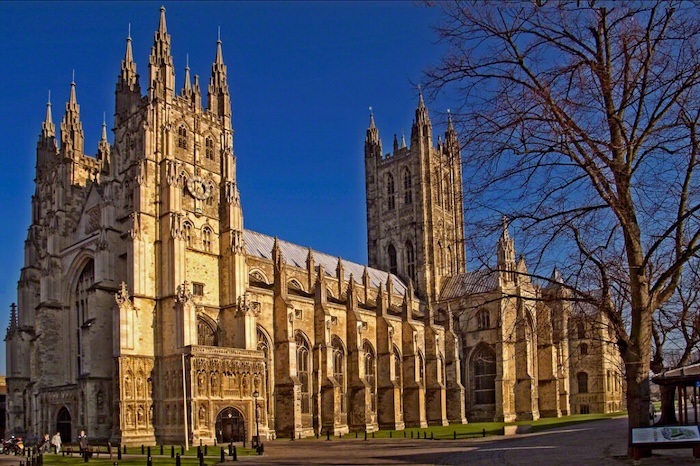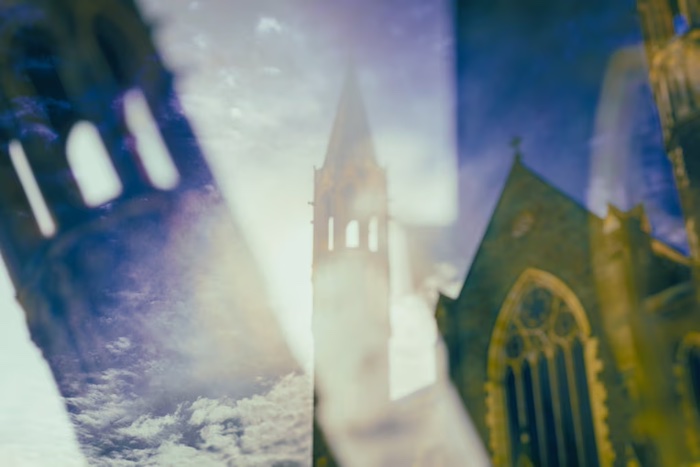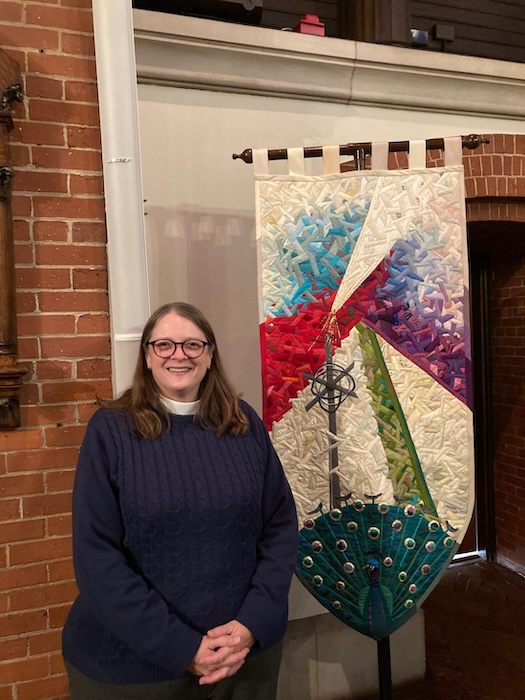
by Greg Parlier
The Rev. Sarah Hurlbert says she can understand why some fellow members of the LGBTQ+ community never want to step foot in a church.
“Why would you want to be a part of a religious group that has oppressed folks?” she concedes.
But Hurlbert, who identifies as bisexual, says the same God that made her who she is also called her to the priesthood. She is disappointed in those who use the Bible to discriminate against minority communities because of what she says is an improper conflation of politics and Christian teachings.
“The more you study, the more you realize a lot of what’s being preached out there as the Gospel is not true,” she asserts. “And a lot of it is this cultural conservatism, and they’ve gotten the Bible and the flag and the Constitution all mixed up. And so it’s important for us to be in the public square, not proclaiming a political party.”
For Hurlbert, there are two primary commandments given by God to guide human life.
“Love God above everything else; love your neighbor as yourself. Outside of that, we have created all these things, all these hoops that people have to jump through, none of it’s Gospel. So what Jesus came to say was a pretty simple message that we’ve managed to really, really make hard.”
Hurlbert joined The Cathedral of All Souls in Biltmore Village as dean in 2022. It is part of the Episcopal Diocese of Western North Carolina, which, she says, has been on the forefront of expanding acceptance in the Episcopal church, one of the first Christian denominations to officially allow openly LGBTQ+ ministers in its leadership.
While the national Episcopal leaders voted to make the church “fully inclusive” in 1976, it was 2009 before they passed a resolution officially allowing the ordination of LGBTQ+ bishops, and there wasn’t full support for same-sex marriage until 2015, according to the Human Rights Campaign.
At All Souls in the 1980s, the Rev. Neil Zabriskie was on the leading edge, challenging the WNC diocese to “begin facilitating conversations around human sexuality as well as becoming a welcoming and safe church for gay and lesbian persons,” according to All Souls’ website.
That conversation continued into the next decade, and today, the Rev. José A. McLoughlin, bishop of the Episcopal Diocese of Western North Carolina, says it’s his goal to welcome and earnestly include everyone, regardless of background.
“In a world where division persists, we hope that our commitment to being open and affirming is an example of the transformative power of love,” he says. “We hope also to be a living example of a church where everyone is not only accepted but fully embraced for who they are and that each person can find belonging that leads to full flourishing in the divine light of love.”
Coming out in the church
The Rev. David Eck, who is gay, did not hide who he was from his congregation when he became pastor of Abiding Savior Lutheran Church in Fairview in 1993. That was a risky move at the time.
“I think early on a lot of us sort of flew under the radar,” he says. “In my denomination, I would have been fired had the bishop known.”
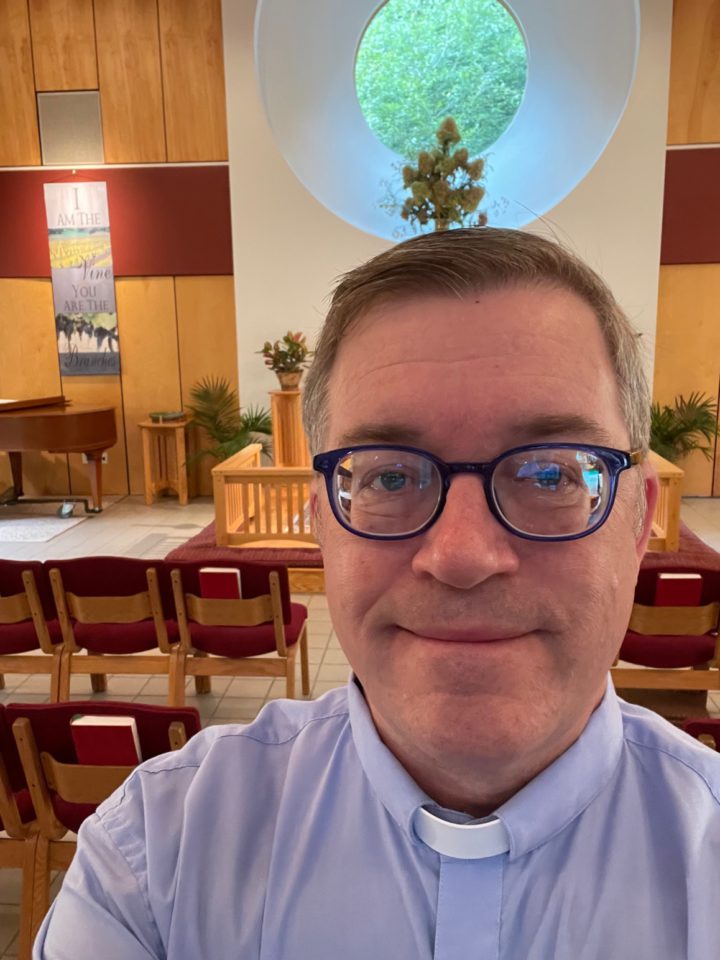
It wasn’t until 2009 that the Evangelical Lutheran Church in America, of which Abiding Savior is a member, voted to allow gay and lesbian clergy to serve openly, he says.
“I would perform all the unions for couples before it was legal to actually marry folks,” Eck says. “And my congregation was supportive of that. And so, you know, we’ve just been sort of quietly affirming a wide diversity of people.”
When Eck did come out to the bishop and his colleagues from other churches, he was the only openly gay Lutheran pastor in the state, but that was less important to him than worship and community outreach.
“Those who know me well weren’t surprised,” he recalls. “Some folks, you know, just can’t seem to get beyond that prejudice. I had to part ways with some people, and there are pastors in the community that won’t work with me. It just is what it is.”
Hurlbert’s journey to the church and self-acceptance went through Broadway. After being raised in the Episcopal church in Central Florida, she moved to New York City, where she worked backstage in Broadway theaters and attended an Episcopal church she liked. But something was unsettled. She met a few women who were ordained in the church and eventually started to realize what she needed to do.
“Something was being stirred up,” she says of her decision to go to seminary. “I took my time and told God a lot of times that God was wrong. And then I did some real conversation in spiritual direction with clergy, and I finally came to realize, yep, this is what’s happening.”
It wasn’t until she was out of seminary and in the Episcopal Diocese of Michigan, where there were lots of other LGBTQ+ clergy, that she came out. By that time, in 2014, the church was much more accepting, making her transition to being open much easier than if she had come out during seminary.
Part of her delay to accept her own sexuality had to do with cultural norms around female relationships, Hurlbert says. There is a cultural acceptance that female relationships take many forms, so early on she was led to believe that certain feelings she was having were just a type of platonic female friendship. Later, when she entered the church, she fought the urge to get swallowed up by her ministry, not allowing herself to be loved by someone because she was so consumed by her duties caring for her congregation.
Eventually, she fell in love with her now-wife, Dee Hurlbert.
LGBTQ+ leadership
For Jesse Nelson, who is gay, the presence of LGBTQ+ leaders in the church is important to fostering a welcoming environment, especially with so much divisive rhetoric coming from segments of the Christian community.
“At the end of the day, you can’t be accepting of LGBTQ+ folks as a church and not accept them into leadership,” he argues. “To me, that’s just not possible. If you’re doing that, you’re playing a game that’s causing confusion.”
Nelson grew up in an evangelical Baptist church in Cashiers but began participating in a local Catholic church because it was a little more socially progressive, he says.
He moved to the Waynesville area about four years ago to help take care of his ailing grandfather and wound up joining Grace Church in the Mountains, an Episcopal church in town, because he liked the way the congregation preached “radical love.”
“They take ‘love God’ and ‘love your neighbor’ very seriously. I think that, for me, that’s pretty important to spiritual life,” he says.
Now, Nelson hosts “joyful fellowship events” for members of the church to share in their experiences as members of the LGBTQ+ community.
Hurlbert says it’s vital for church leaders to actively show the wider community love and acceptance, through word and action, especially in the face of hateful rhetoric that is also being attributed to the Bible.
“I preach to our folks that we’ve got to be out there because there are young people growing up in this far-right Christian nationalism that know in their heart that something’s wrong, but they have nothing that they can go to,” she says. “They don’t even know that there’s a place where you can go and be gay and Christian. For a lot of people, it’s a matter of life and death for us to just be out there and be who we are.”
For Nelson, integrating LGBTQ+ people into the church is the only way to build a community that resembles the one taught by Scripture.
“The point of Christianity to me is to grow in love and understanding, and to build peaceful, loving communities,” he says. “And to do that, I think you have to be accepting of the LGBTQ+ community. Not just tolerate it, but you know, integrate it into spiritual life. Because yeah, it is part of our life experience. So it is sacred.”
Complete Article ↪HERE↩!

